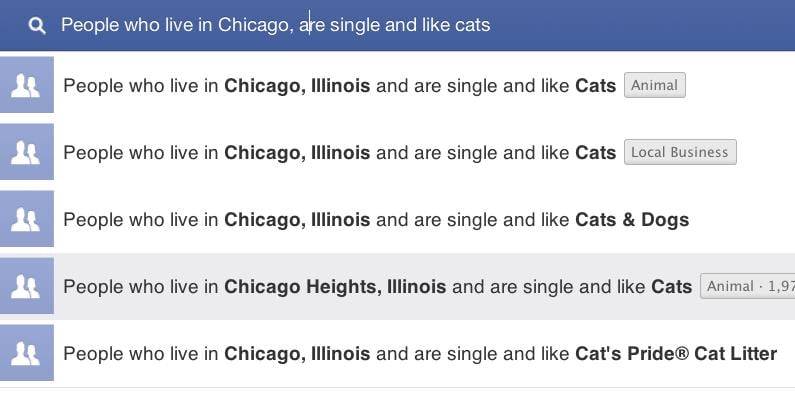The number of transistors per square inch on integrated circuits (computer chips) has doubled roughly every 18 months since the integrated circuit was invented. This doubling is often referred to as Moore’s law, and will likely continue into the future.
If it does, this means we will continue to see an exponential increase in processor speed, computers will continue to shrink in size, and the price of manufacturing computers will continue to fall. All of these advances will ultimately lead to new types of computers, and the traditional desktop P.C. will be supplemented and possibly replaced with wearable computers like Google Glass.
The computer of the future will almost certainly not require a keyboard or mouse, and instead rely on voice to interface with it, and as far-fetched as it may seem now, brain activity. What are search engines doing to adapt to a post-keyboard world?
Natural Language Processing

For over 20 years, we have been searching the internet using keywords to find web pages that contain information we seek. The web pages that you find in search results almost always contain the exact words you used in your search somewhere in their content. A search engine will often disregard words like “what” and “how” and instead focus on the nouns and adjectives within the query, their relationships to one-another, and their relationship to all other words the search engine has seen before (known as term vector space).
A search engine might infer that in the query “best chinese food place”, the word “place” may mean “restaurant” based on it having previously seen the words “chinese food” and “restaurant” used near each other, and its understanding that the term “restaurant” is a “place”.
If I wanted to find a good Chinese restaurant near me using Google, I might type “best chinese restaurant midtown manhattan”. This type of query would sound weird when spoken out loud. If I were asking a friend to recommend a Chinese restaurant, I might instead ask “Do you know of any good Chinese restaurant near my office?”
The way we speak and the way we search the internet are different in that search queries usually contain only the key phrases we want to find, lack pronouns (he, she, we), and are often a question posed as a string of words concatenated together (“post office Brooklyn hours”) that would make a person sound like a Neanderthal if asked out loud to another human being.
In a future where we speak to our computers, the computer must be able to interpret what we say and derive its meaning. This is known as natural language processing and search engines have already begun implementing this type of computational linguistics into their algorithms, most notably in the new Hummingbird algorithm released by Google. This algorithm update positions Google to answer questions, as opposed to a search engine’s traditional role of matching keywords in a query to web pages that contain them.
Predictive Analytics
As computers become smaller and can be worn on your person, they gain access to a variety of signals that a traditional desktop computer does not have. Already, a smartphone knows your precise location, the temperature around it, how fast it is moving in a direction, the time of day, the usage patterns of its owner, and where it has been before.
Google has developed Google Now to harness all of these signals and provide you with answers to questions you may have, before you ask them. It may know that you leave for work every morning at 8:00, and based on the speed at which you travel to your office and the path you take, make the inference that you drive to work on a highway. When you turn on your phone, Google Now can alert you of traffic on your morning route with a notification on your home screen, without you doing any search at all.
These signals, in conjunction with data Google has collected on you based on past search queries, your Gmail message content, your web surfing habits, and other sources of data such as your Google+ profile can be all be culled together to predict what information you may need at the time that you need it, and suggest answers to questions you may have throughout the day.
If your phone knows you’re away from home, and a sports team you follow is playing a game, you may turn on your phone and be presented with a notification of the score of that game. If you have bought plane tickets to go to San Francisco tomorrow and the ticket confirmation is in your Gmail inbox, Google Now could alert you that it will be raining in San Francisco tomorrow so you can be prepared.
Neural Networks
A neural network is a computer system modelled after the human brain. By combining clusters of computers and with use of specialized algorithms, search engines can analyze images and understand what objects are in them. Google recently created a neural network and fed it 10 million thumbnails of cats from YouTube videos. The neural network was able to take this input, and use it to “learn” what a cat is, so that when presented with another picture featuring a cat the network would know there was a cat in the image. The human brain is very good at pattern recognition, and by modeling that, search engines can categorize information that is not properly tagged online.

Neural networks will be used to recognize objects in images and videos, improve speech recognition in mobile and wearable devices, and be used to increase a search engine’s ability to categorize information on the web and answer questions. Google Plus has recently integrated the ability to search for images, even if they aren’t tagged, based on objects in the images. They recognize over 1,000 different objects, and it is not hard to imagine a day where image search engines are able to identify the objects inside of images on web pages without looking at alt tags or surrounding text.
How Can I Prepare My Website?
Webmasters should continue to optimize their web sites content to answer questions their visitors may have, and provide them with authoritative and unique content. Having a strong brand associated with your website will also become more important, as search engines will be able to identify your brand as an “entity”. Additionally, using rich snippets and structured data in your website’s HTML code will help search engines understand and extract the important pieces of information on your web pages.
Google and the other search engines are frequently changing the algorithms used to determine the relevancy of websites in search results. There is no magic bullet, and what worked last month may not be effective today. That’s why AmsiveDigital constantly reassesses our SEO strategies to ensure that your website remains relevant and visible in the marketplace.
For a free marketing consultation, fill out our request a proposal or call 800-680-4304 today.






